Resolutions Adopted by the 104th Session of the Maritime Safety Committee (MSC 104) (Part 4): Amendments to The Performance Standards for Shipborne Voyage Data Recorders (VDRs) (Resolution MSC.333(90))
This article deals with Resolution MSC.494(104) that was the fourth resolution made by the Maritime Safety Committee (“MSC”) at its 104th Session. It is also the fourth and last Resolution published in Malaysian Shipping Notice MSN 01/2022, on 12 January 2022.
This fourth resolution of the MSC introduced three changes. First, amends the existing Paragraph 3.1. With this newly amended Paragraph 3.1, the previous Resolution A.810(19) on ‘Performance Standards for Free Flat Satellite Emergency Position-Indicating Radio Beacons (EPIRBs) Operating on 406 MHz’ from 23 November 1995 is deleted. Second, Resolution A.810(19) is replaced with the newer MSC.471(101) on 'Performance standards for float-free emergency position-indicating radio beacons (EPIRBs) operating on 406 MHz', from 14 June 2019.
According to the MSC, this was “to prepare performance standards for float-free EPIRBs operating on 406 MHz through the Cospas-Sarsat System of low-altitude earth orbiting, medium-altitude earth orbiting, and geostationary earth orbiting satellites to be used in the GMDSS”. In particular, “to ensure the operational reliability of such equipment and to avoid, as far as practicable, adverse interaction between such equipment and other communication and navigation equipment on board ships”. In other words, setting minimum harmonised operational standards for electronic beacons used in search and rescue in the maritime sector.
The third change introduced by the fourth resolution, is a new Paragraph 5.2.2 on ‘Free Float Recording Medium’. This provision provides specifically for the recording device to be placed in a free float capsule. Officially, there are 5 express requirements that this capsule must meet (arguably it is a much longer list when one looks at the nitty gritty details in [3] and [4] below). So here are the requirements:
[1] Have a mechanism to facilitate grappling and recovery;
[2] Even after the recording has ended, must be able to retain the recorded data for 6 months;
[3] Comply with the list of requirements in resolution MSC.471(101), and be designed to minimise risk of damage during recovery operations;
[4] Technically able to send an initial satellite distress alerting signal, and further locating and homing signals over a period of not less than seven days/168 hours; and
[5] Accessible after an incident, but have sufficient security to physical or electronic manipulation, e.g. change or deletion of recorded electronic data.
This wraps up the MSC’s Resolutions on some of the major ‘safety’ related issues dealt with at its 104th Session. Here is an interesting concluding anecdote. At one point in time in the shipping world, a ship that was ‘unsafe’ was not necessarily ‘unseaworthy’. Mr. Justice Perry famously said in Hutton v Royal Exchange [1971] N.Z.L.R.1045 (SC) how the absence of a dinghy, fire extinguisher and medical supplies, could make the ship unseaworthy as it did not diminish the ship’s ability to prevent incursion of seawater. Although the ship may be ‘unsafe’, Mr. Justice Perry said the ship could handle the ordinary risks a ship faced at sea. However, this legal position is no longer tenable.
After The Eurasian Dream [2002] 1 Lloyd's Rep. 719, Mr. Justice Cresswell made it clear that any breach of the International Safety Management (ISM) Code, was evidence that the ship was unsafe and therefore unseaworthy due to non-compliance with an important feature of the Safety of Life at Sea Convention (SOLAS) 1974. Note, the ISM Code was made a part of SOLAS via 1994 amendment through Resolution A.741(18), and entered into force in 1 July 1998. For further reading on the ISM Code, see https://www.imo.org/en/OurWork/HumanElement/Pages/ISMCode.aspx (accessed on 3 October 2022). Hence, it is submitted that non-compliance with any of the IMO safety measures, especially if they are mandatory, would be evidence that the ship is unseaworthy.
Thank you for reading IMSML Website Article 7/2022
Stay tuned for the next IMSML Website Article 8/2022:
Malaysian Shipping Notice MSN 3/2022 - Amendment To Recognised Security Organisation (RSO) Instruction Under Section 249x of the Merchant Shipping Ordinance (MSO 1952) for Ships Verification and Certification
Signing-off for today,
Dr Irwin Ooi Ui Joo, LL.B(Hons.); LL.M (Cardiff); Ph.D (Cardiff); CMILT
Professor of Maritime and Transport Law
Head of the Centre for Advocacy and Dispute Resolution
Faculty of Law
Universiti Teknologi MARA Shah Alam
Selangor, Malaysia
10 October 2022
Note that I am the corresponding author for the IMSML Website Articles. My official email address is: uijoo310@uitm.edu.my
Edited by Trishelea Ann Sandosam, Vice President, IMSML
